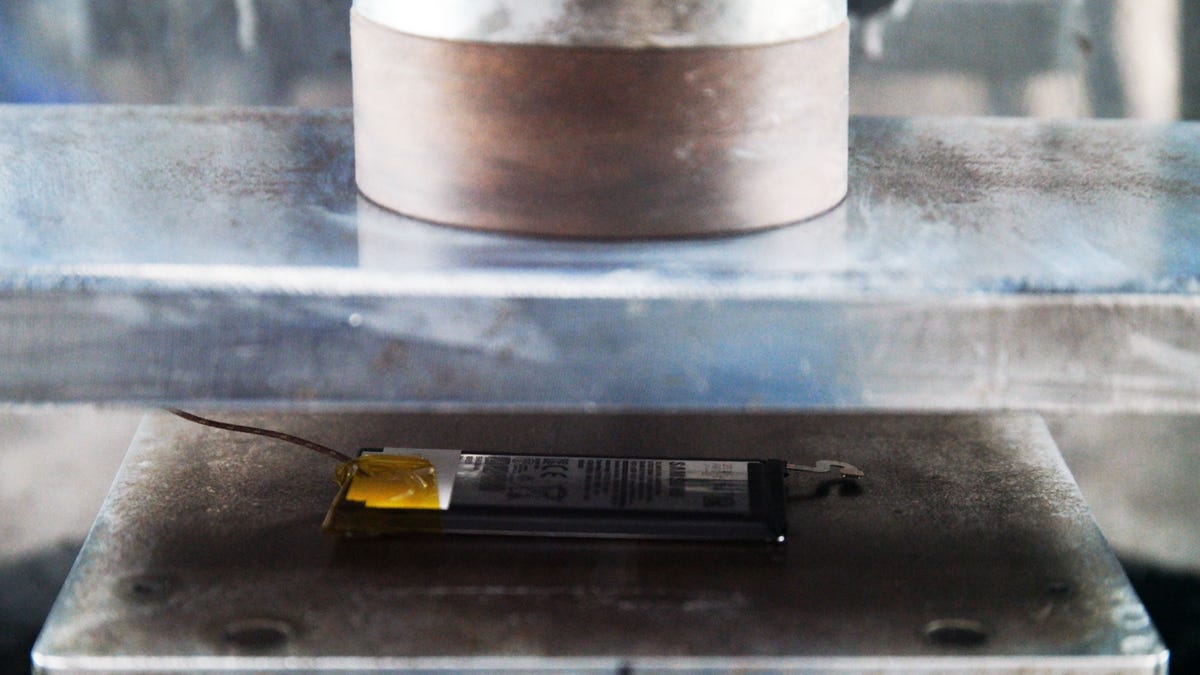South Korea steps in to monitor battery safety
In the wake of its investigation into the Samsung Galaxy Note 7 fires, the government puts stricter oversight in place for lithium-ion battery makers.

Compression testing is done on Samsung's batteries as part of a widespread review of battery durability and safety.
South Korea said Monday it plans to strengthen the safety rules for lithium-ion batteries and beef up inspections to prevent a repeat of the fire fiasco that forced Samsung to recall the Galaxy Note 7 phone.
South Korea-based Samsung voluntarily recalled the Note 7 last fall when a major battery flaw caused a small number of the phones to spontaneously explode and sometimes burst into flames, damaging property and leaking dangerous chemicals.
Last month, the top US safety agency said Samsung took the right steps in figuring out what went wrong with the Note 7, but it called for the rest of the industry to set better safety standards for batteries.
South Korea apparently heeded that call. In addition to subjecting manufacturers of lithium-ion batteries to greater oversight and regular inspections, the country's Ministry of Trade, Industry and Energy said it would improve the system by which phones get recalled.
The Galaxy Note 7, one of Samsung's most high-profile phones, blew up in the company's face last fall, suffering multiple recalls and bans by airlines before flickering out with a final "death update" that essentially bricks any units remaining in the wild. Thousands of diehard Note 7 fans continue to hold onto their devices, but the vast majority of the phones have been exchanged.
In its statement Monday, the government said an independent study by the Korean Agency for Technology and Standards backed up Samsung's own investigation results indicating that the Note 7 problems were caused by a combination of battery-design flaws and manufacturing processes. To minimize future issues, over the next five years batteries produced in the country will now have to undergo quality-control checks during manufacturing, not just post-production, it said.
The safety measures announced Monday follow an agreement in September between Samsung and the Korean Agency for Technology and Standards requiring additional battery checks for phones to be sold in-country.
Solving for XX: The industry seeks to overcome outdated ideas about "women in tech."
Crowd Control: A crowdsourced science fiction novel written by CNET readers.

